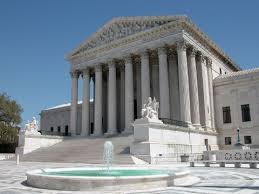Lawyers for the state of Texas today defended that state’s discriminatory voter ID law before an en banc panel of the Fifth Circuit Court of Appeals in the case of Veasey v. Abbott. Link to Oral Argument.
The Texas Tribune reports, In High-Profile Case, Texas Defends Its Voter ID Law:
 Standing before all 15 members of the U.S. 5th Circuit Court of Appeals, Texas Solicitor General Scott Keller argued that judges were wrong to conclude in two previous rulings that the Texas Legislature discriminated against minority and low-income voters in passing a 2011 law that stipulates which types of photo identification election officials can and cannot accept at the polls.
Standing before all 15 members of the U.S. 5th Circuit Court of Appeals, Texas Solicitor General Scott Keller argued that judges were wrong to conclude in two previous rulings that the Texas Legislature discriminated against minority and low-income voters in passing a 2011 law that stipulates which types of photo identification election officials can and cannot accept at the polls.
* * *
Lawyers representing the U.S. Department of Justice, minority groups and other plaintiffs disagreed, asking the judges to affirm what a lower court — and a three-judge panel in this same courthouse — previously concluded: that Senate Bill 14 has a “discriminatory effect” on Hispanic, African-American and other would-be voters in violation of Section 2 of the Voting Rights Act.
Only a handful of judges asked questions at length on Tuesday, making it difficult to know where the majority stands. But the 5th Circuit is considered among the nation’s most conservative, with 1o of its members having been appointed by Republican presidents.



